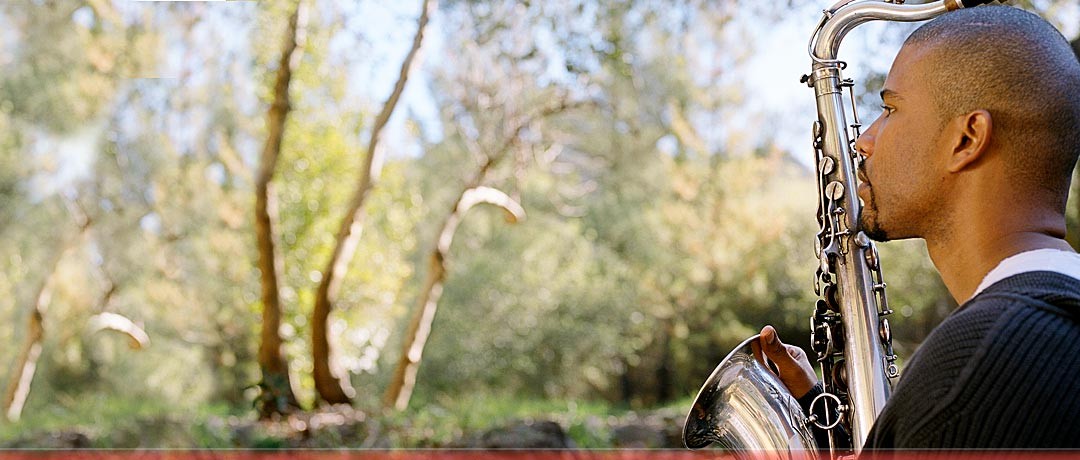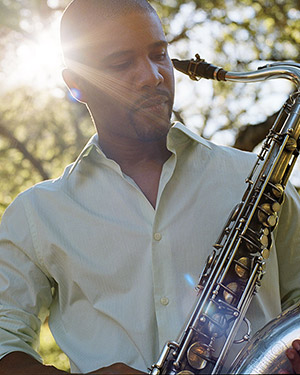
Grammy® Award-Winner David Sánchez
Composer, Recording Artist, Soloist & Educator
David is recognized around the world as one of the finest saxophonist of his generation. His mastery of the instrument is undeniable and his sound unmistakable. Combine that with Sánchez’s deep-seated knowledge of both Jazz and Latin music, and the traditions that mold them, and the results are extraordinary.
Sánchez has performed and recorded with Jazz Master and mentor, Kenny Barron (album “The Spirit Song”), Roy Haynes (album “Praise”), Charlie Haden (album “Nocturne”), Roy Hargrove (Album “Crisol”), Pat Metheny, Lalo Schiffrin, Danilo Perez, Tom Harrell, Gonzalo Rubalcaba, Kenny Werner, and had the opportunity to perform with the legendary drummer Elvin Jones.
In addition to his position as Artist in Residence at the Music Conservatory of Puerto Rico, Sánchez has taught master classes in Brazil, at the Peabody Conservatory, Manhattan School of Music, Indiana University’s School of Music, Stanford University, University of Memphis, Emory University and completed a year-long residency at Georgia State University. Such work, he says, “gives me great satisfaction. At the same time, it’s a real challenge, and you end up learning so much yourself. You give, but you receive too.”
For additional information please visit:
– http://www.davidsanchezmusic.com
– http://www.facebook.com
David Sánchez Quintet At The Heineken Jazz Festival In Puerto Rico
The Words of Wisdom of Jazz Virtuoso Sax Player David Sánchez
Where you classically trained then switched to jazz and commercial music?
I began my studies at a performing arts school where classical music was a big part of the training foundation. However, there were also a variety of ensembles where other genres of music were studied and performed as well. Therefore, I can’t really say that I switched, because almost from the very beginning I was exposed to and got to play different styles of music.
On days when you are not performing or rehearsing how long do you practice for?
Nowadays, It all depends on how long I’m at home before I have to go back on the road. When I have a week or more, I try to practice without a time limit and focus on the flow of whatever I’m practicing, even if that means playing slowly throughout the entire practice routine.
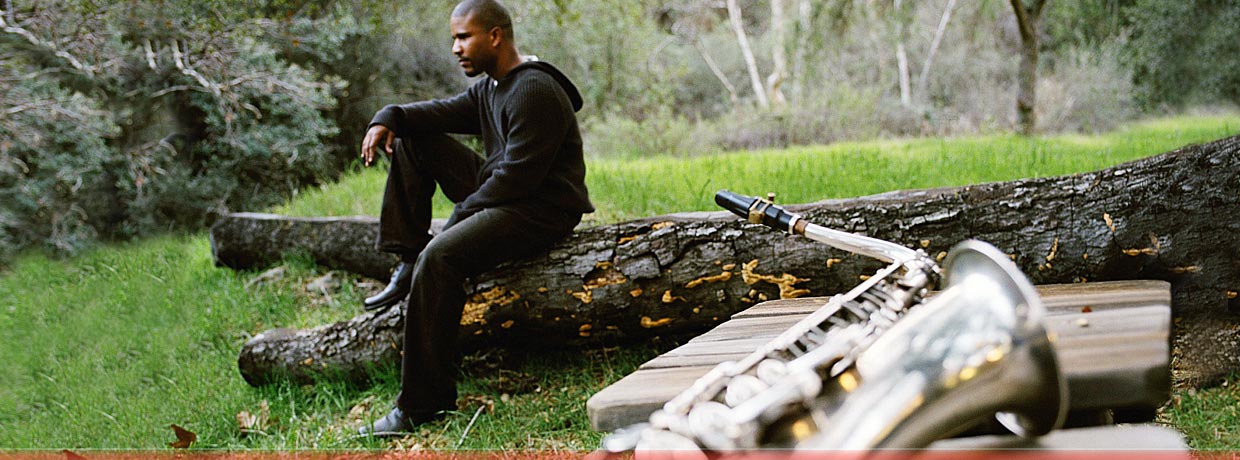
What do you mostly work on when at home practicing?
Most of the time I’m working on sound textures and rhythm.
How long where you studying/playing jazz before your solos started sounding cohesive and professional?
I’m not sure exactly how long exactly I studied before I felt comfortable improvising and my solos were “cohesive”. I feel like learning how to improvise is a never ending process and within this process from beginning to end it’s all connected. I think the first stages of this learning process is special because as beginners, we attend to connect in a very pure and honest way. We shouldn’t forget this feeling, it will bring balance and perspective later on.
When you are improvising are you thinking about scales or are you simply playing melodies and ideas that are playing in your head?
I try to follow the melody and its cadence in relationship to harmony. The Melody and the its rhythm is the main source. Also attempting to connect and being receptive to the rest of the group we are playing. This is a key component to make the ensemble and the music sound coherent.
When soloing, do you have the chord changes memorized or do you simply have an idea of shapes and colors of the tune?
When I’m soloing I always like to know the changes of the song, but most importantly to know the melody.
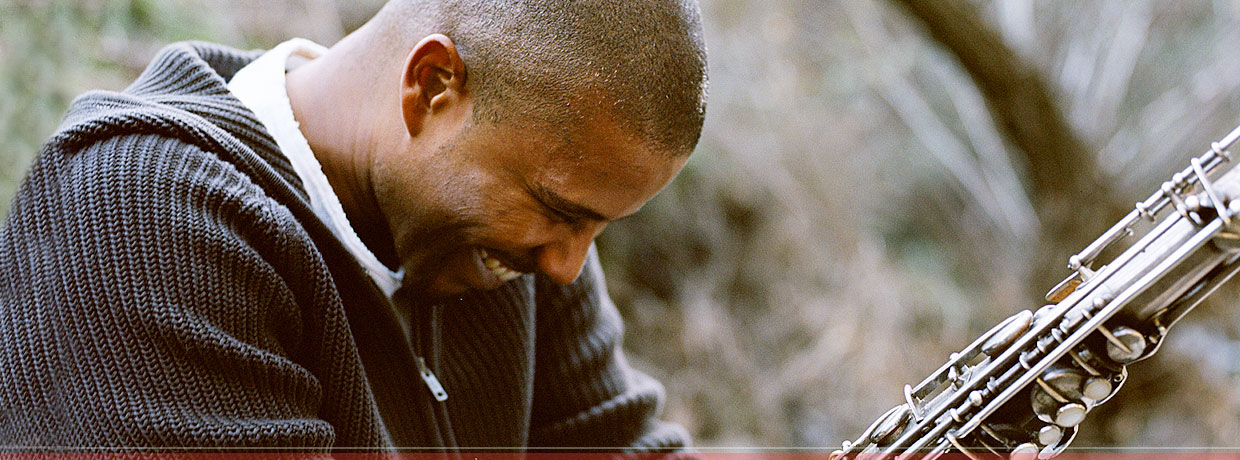
Are you normally not really concerned with the actual chord changes?
I’m more concerned with not knowing or understanding the melodic cadance and form of whatever composition I’m playing.
Do you prefer to play with your own band or with other groups?
I love playing music period, but it’s a little extra special when I play with my own band because I have more control of the concept begin the music.
Do you approach your playing any different if you are playing with say Pat Matheny as opposed to your own group?
My playing is basically the same, but I do have to make some adjustments depending on what the situation needs. It’s wise to embrace the roll we have to play in a given situation.
Do you ever run out of ideas when playing a solo?
Sometimes I ran out of ideas, it helps me using phrases from the melody it self. It always brings perspective and helps generating more ideas.
When recording your album, do you go for the first solo or do you do a few takes of the solo until you are happy with the result?
I have the tendency of using the first take, obviously It all depends on how we played together and the general vibe. I always go for the flow as a total, even if I’m not totally happy with my individual performance. I think the group’s performance is always the most important element.
What kind of scales and patterns do you practice?
I have practiced many different scales throughout my development. But I have found myself going back to understanding the major scale, its many different components and variations, including the over tone series. I try to stay away from specific “patters” because I have found that patters are always limited, and understanding tone relationship melodically, has the possibility of being limitless.
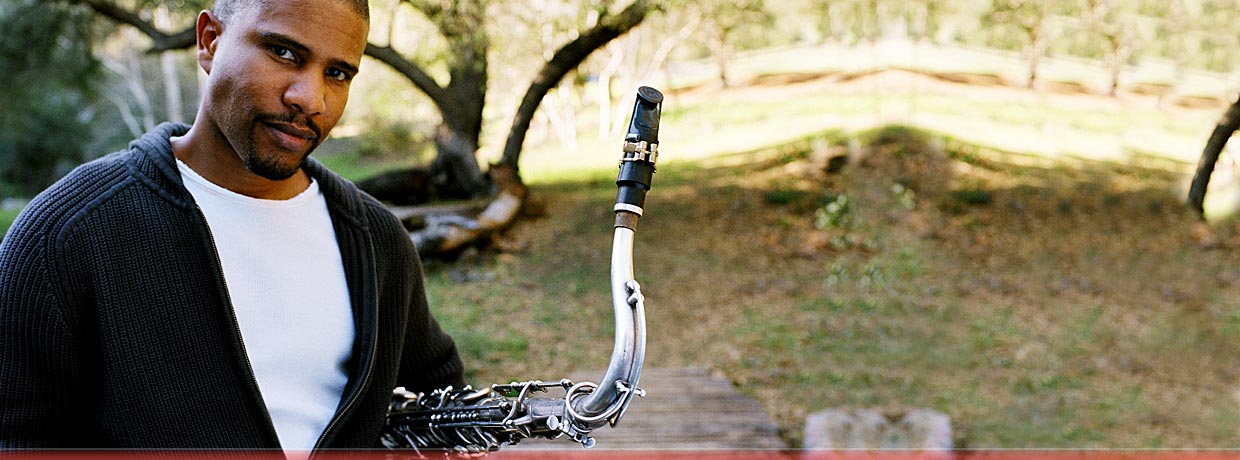
Who do you listen to for inspiration?
I listen to all kinds of genres for inspiration. From Jazz, African Music, Classical, Funk, Afro – Caribbean to Brazilian and others.
How much time and effort do you put into composing?
I think writing is imperative to find our own voice. I try to write as much as I can, even when sometimes I feel uninspired because I feel like I’m repeating myself etc.
Do you select horns and mouthpieces depending on what the job calls for?
No, I always have tried to find a horn/mouthpiece set up that gives me as many colors and textures as possible. It’s up to me to make the proper adjustments for each situation.
What is your prefer equipment for club dates where you are the soloist?
My instrument and equipment is basically the same when I played in clubs, theaters or in out door Festivals. I do use my mic. Neuman 170 more in theaters and in some festivals.
Now that you are an established soloist, what is your biggest career challenge?
My biggest challenge is surviving the task of time, moving on forward with time isn’t always easy. We get used to do things a certain way, get comfortable and then we stop being adventurous.
Best advice you would give to an upcoming player?
Don’t think of the results you’d like to get and focus in the process. Sometimes loving what we do along with passion will layout our path, as well as bring opportunities. Never stop being curious. Think of any situation, good or bad as an opportunity.
Notable Albums

